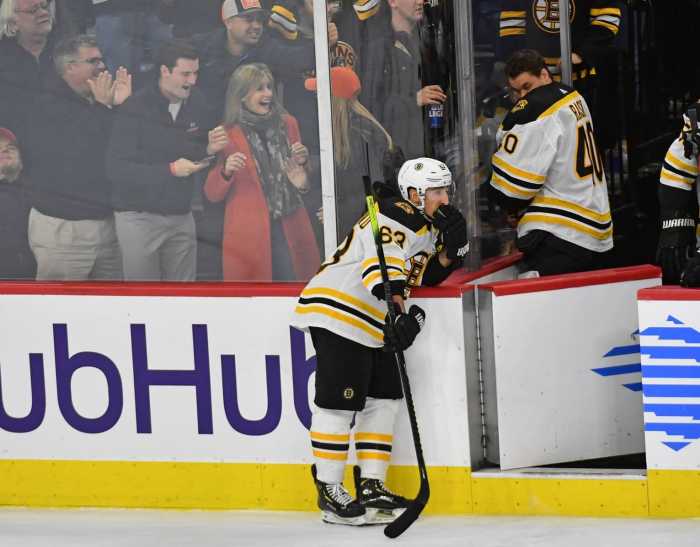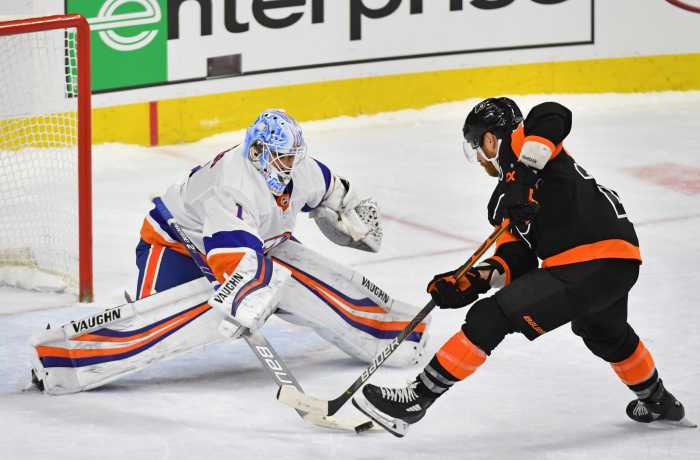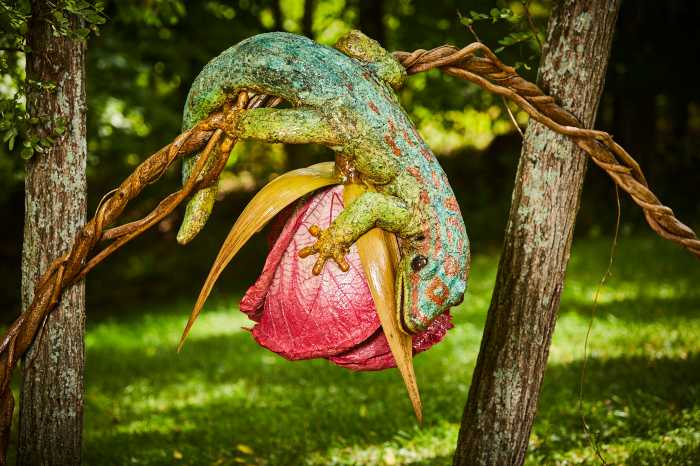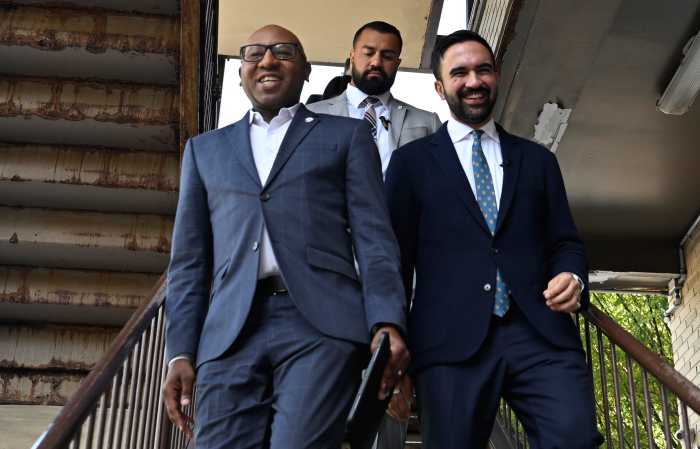There were several factors that contributed to the crushing of the Flyers’ Stanley Cup Dreams, but arguably none larger than the disappearance of the Flyers power play. Despite a relatively strong showing in the round-robin games and a clear statistical advantage over the Canadiens and a struggling PK unit, the wheels started to wobble and from there it was only going to end badly.
Power play problems
The Flyers exit the playoffs with a dreadful 7.7% power play percentage on 52 attempts. Boston, meanwhile, converted 22% of their 45 opportunities through 3 less games before crashing out of the playoffs. The Bruins had other areas to worry about, but for the Flyers, who were unable to find production from the top line, these power play chances were absolutely viral…and heartbreakingly extinguished.
“I think especially in playoffs, it can change a series for sure, special teams, PK and power play.” Vigneault said after game 7. “Their special teams were a lot better than ours. If you look throughout the games, even if some games we weren’t quite sharp, you get a few goals or stop a few PKs, it’s a few less goals their side and a few more goals our side. Maybe we have a better result. It wasn’t good enough. Probably played a big factor throughout the series.”
The Islanders were extremely disciplined defensively, surrendering just 13 power play opportunities through a seven-game series. The Flyers converted none of them. The worrying truth is that they could’ve surrendered 103 and the Flyers may still have struggled to find the net.
In fact, it was just the fourth time in franchise history that the team went without a goal on the man-advantage in a seven-game series.
” I think especially in playoffs, it can change a series for sure, special teams, PK and power play.” Sean Couturier explained following the heartbreaking 4-0 defeat. “Their special teams were a lot better than ours. If you look throughout the games, even if some games we weren’t quite sharp, you get a few goals or stop a few PKs, it’s a few less goals their side and a few more goals our side. Maybe we have a better result. It wasn’t good enough. Probably played a big factor throughout the series.”
Claude Giroux also acknowledged the total lack of production.
“Our power play wasn’t there this series. Could have gotten us a couple big goals this series, but power play didn’t get the job done.”
Where did it all go wrong?
What felt infuriating to many was the fact that the power play wasn’t even that bad during the regular season. If anything, its spike in production around the time of ‘the streak’ was a huge reason behind the iconic run of form. A 20% clip at home and 21% conversion rate on the road through the regular season was pretty solid.
In 2020 alone, from the first game of the new year against Vegas game right through to March, the power play unit trended up as many times after game as many times as it trended down, at 15-15 through the final 30 games, going through a phase of converting at least once in 8/11 games.
The sudden drastic form in the bubble just felt so alien, but so normal. No adjustments were made in either of the two playoff series. The personnel groupings were identical, as was the power play’s mentality and cautious approach that ultimately swallowed them whole.
But what changed? What was so different about the power play success in the regular season compared to its demise in the playoffs? Did the lack of fan noise contribute in situations that would clearly unnerve the opposition in a hostile environment? Was it coaching? Or did the Islanders just learn from the Canadiens and realize that there would be no curveballs or barrage of shots on net, just a sluggish power play almost acting as a penalty kill?
Frustratingly, the answer is murky. With the top-line also struggling, the problems may well be correlated. Is it then on Michel Therrien and his coaching that need to be addressed? The wound is probably still a tad too fresh for the time being, but it isn’t one that’s going to close up any time soon and it could well require surgery.
Photo Credit: Alex Mcintyre




























